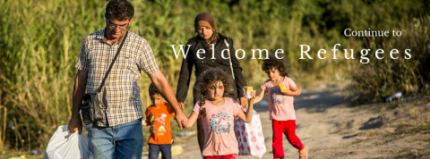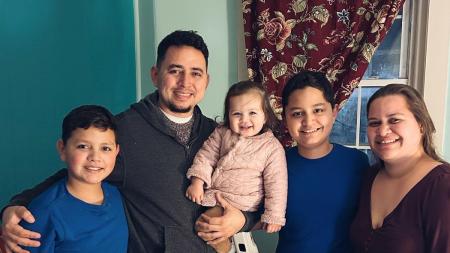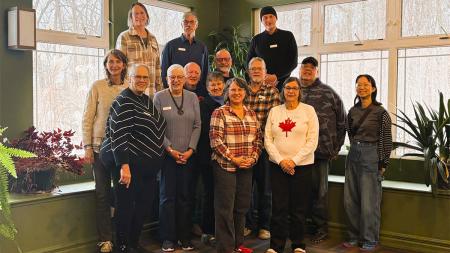Resources Available to Respond to Anti-Refugee Sentiment

The Christian Reformed Church is providing a range of resources that congregations can use in responding to anti-refugee sentiment that has arisen across the world in the wake of a series of recent terrorist attacks.
Available through the blog site Do justice, the resources include prayer, scripture texts, educational pieces, media articles, and suggestions for how people can contact lawmakers about the rising tide of anti-refugee sentiment.
“Refugees, who are fleeing from the violence of terrorism, should not be scapegoated for the extreme acts of violence,” said Dr. Steven Timmermans, executive director of the CRCNA.
“As Christians, we must speak clearly and loudly: we are called to welcome the stranger, protect the vulnerable, and love fearlessly. We are called to respond with love even amidst our fear.”
The militant group ISIS has taken responsibility for the attacks that occurred last week. The first was on Thursday, Nov. 12, in Beirut, Lebanon, where 43 people were killed and 250 injured in a double-suicide bombing.
The next attack happened Friday afternoon when a suicide bomber killed 20 people and wounded about 40 attending a funeral in Baghdad, Iraq. On Friday evening, 123 people were killed and more than 350 were injured in six different attacks in Paris, France.
Not long after the terrorist attacks in Paris, anti-refugee sentiment erupted in what is called “The Jungle” refugee camp in northern France. Several people were attacked and the camp was set ablaze. On Saturday, the mosque in Peterborough, Ontario was subject to arson.
Meanwhile, more than 20 U.S, governors have called for a halt to the resettlement of Syrian refugees, questioning whether there are enough safeguards in place to prevent a would-be terrorist from coming into the country as a refugee. In addition, the U.S. Congress is debating placing additional restrictions on keeping refugees from entering the U.S.
Colin Watson, the CRC’s director of ministries and administration, said Christians should be concerned about this anti-refugee sentiment and find ways to reach out to refugees.
“My great hope is that we put a priority on what our faith calls us to: hospitality, fearlessness, and compassion,” he said.
“Let's keep our leaders in our prayers as they deal with these important issues — and then let's live out what we most deeply believe: that God is in control, that the church's call is to reflect the light of Christ, that the Holy Spirit is alive and well. We are a people of hope, not fear."
The Centre for Public Dialogue and the Office of Social Justice put together the resources aimed at helping churches respond to anti-refugee sentiment.
Titled “In the Aftermath of the Attacks,” the resources were initiated by the blog post, Prayers for Paris...and Beirut...and Baghdad, written by CRC pastor Thyra VanKeeken in Brandon, Manitoba.
“We are making this available because of the public attention given to refugees after the Paris attacks,” said Kate Kooyman, restorative justice coordinator for OSJ.
When political leaders started to draw connections between terrorism and refugees, by linking refugee resettlement policies with efforts to protect from terrorists, the CRC offices wanted to provide helpful resources and information to congregations, she said.
“We hope churches will pray for refugees, individually, or when they're worshiping on Sunday, and we hope they'll get informed about our system, and we hope they'll advocate to their leaders about responding with hospitality,” said Kooyman.
She said she believes U.S. governors are perpetuating a harmful myth about immigration of refugees by claiming there aren’t enough protections in place to keep terrorists out of the country.
“The U.S. already has the most robust screening process for refugees in the world. The process involves the U.S. Departments of State, Homeland Security and Defense as well as the FBI and the National Counterterrorism Center.
“It usually takes at least 18 months, and it already includes things like in-person interviews and background checks. The U.S. takes a tiny portion of the world's refugees, a fraction of one percent, so it gives priority to those who are most vulnerable.”
The U.S. refugee resettlement system is offering hope and a chance at life “to desperate people — victims of violence and terrorism, and image-bearers of God who have endured unthinkable suffering,” she said.


